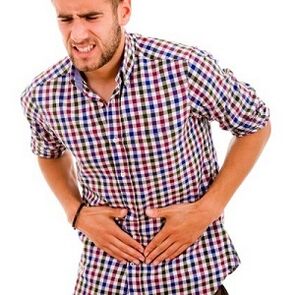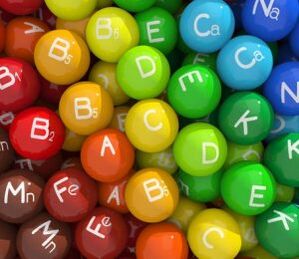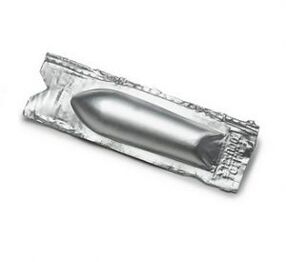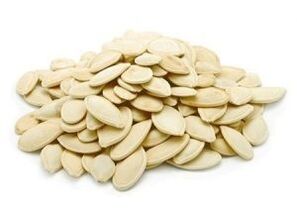Is it possible to cure chronic prostatitis and what methods of therapy will be needed for this? To understand this problem, it is necessary to consider the pathology itself. Prostatitis can develop for many reasons, the most common of which are hypothermia, sedentary lifestyle and infections.
Symptoms

Chronic inflammation of the prostate gland progresses gradually.
The main symptoms of this pathology:
- pain during urination and defecation;
- tiredness and apathy;
- discomfort felt in the lower abdomen and genital area;
- periodic increase in temperature to 37-38 degrees.
When the prostate gland becomes inflamed, a man loses sexual potency. This symptom is also one of the most characteristic and it is highly advisable not to "suppress" it.
Is it possible to cure chronic prostatitis? Some people believe that it is impossible to overcome this pathology. In fact, prostatitis is treatable, you just need to use effective and safe therapeutic methods.
Treatment methods

When a person claims that chronic prostatitis is incurable, he most often considers only one therapeutic method.
Specialists in the field of urology have long proven that this form of inflammation of the prostate can only be cured comprehensively. That is, it is necessary to use several methods of therapy at once, including:
- Medicines. To treat prostatitis in men, antibiotics, alpha blockers, antispasmodics, painkillers and anti-inflammatory drugs are used.
- Manual massage. This therapeutic method is performed by a specialist. It is important to understand that in some cases prostate massage is contraindicated. It is not given to patients who have complications (for example, stones have formed).
- Traditional methods. They are less popular due to their slow action. Traditional therapeutic methods can enhance the effect of the main treatment (drug).
- Diet. To completely cure the prostate, you need to give up junk food and bad habits. Otherwise, the man's body will be constantly weakened.

How to cure chronic prostatitis? In addition to the described methods of therapy, you can also use vitamin complexes. The entry of pathogenic microorganisms into the prostate gland has a serious impact on men's health. It is for this reason that patients are advised to take vitamins and nutrients (omega-3 acids, calcium).
Is it possible to cure chronic prostatitis with traditional methods? Those who have completely cured this disease confidently say that it is impossible.
Alternative treatment can enhance the positive effect, but nothing more. It is also not recommended to resort to urinary therapy - this method is very dubious.
Can prostatitis be treated surgically? In advanced cases, surgery may be necessary. If treatment is started too late, stones (larger than 4 mm) may form in the prostate gland. Very often, in such situations, surgical intervention is resorted to.
Is chronic prostatitis 100% curable? Yes, this pathology can be completely cured. The most important thing is not to "fly away" in the middle of therapy. You cannot stop your diet or stop taking medications until healing occurs.
Pharmacological treatment of chronic prostatitis
The question of whether chronic prostatitis can be cured has already been answered in detail. Now we need to understand exactly what drugs you need to use to fight this disease.
Important! It is strongly recommended to visit a specialist before starting therapy. Only he will be able to select an effective treatment regimen and prescribe manual massage.
Prostatitis can be treated with the following medications:

- Antibiotics. They have an antibacterial effect, that is, they fight the cause of the development of the pathology. For therapy, both conventional antibiotics and highly effective broad-spectrum agents - fluoroquinolones are used.
- Rectal suppositories. Such preparations may contain antibiotics, beeswax or medicinal herbs. Suppositories are used both to eliminate the symptoms of the disease and to destroy pathogenic microorganisms. These drugs act quickly.
- Antispasmodics. Medicines in this category are needed to relax the muscle cells of the prostate gland. It is because of the spasm that it is painful for the patient to go to the toilet, so antispasmodics are mandatory therapeutic agents.
- Non-hormonal anti-inflammatory drugs. Many people debate whether or not these drugs are necessary to treat the prostate gland. With their help, prostatitis can be stopped, that is, the inflammatory process can be slowed down. In addition, such remedies effectively relieve pain and relieve fever.
Patients wondering how to get rid of chronic prostatitis should take a closer look at the remedies from this list. All drugs have contraindications, which must be read before use.
Important! For tuberculous prostatitis, treatment with fluoroquinols is prohibited.
Traditional methods

Traditional methods of therapy are especially recommended in cases where a person has already cured prostatitis. They are used for preventive purposes and help prevent relapses. Prostatitis can also be treated with traditional recipes, but only by combining them with drugs.
Traditional medicine offers the following therapeutic methods:
- pumpkin seeds (used before and after meals, approximately 200-250 grams per day);
- baths with the addition of chamomile or sage extract;
- anti-inflammatory herbal mixtures (can be purchased at any pharmacy);
- dried poplar bark (1 tablespoon mixed with 300 ml of alcohol and infused for 10 days).
How can chronic prostatitis be treated with vitamins? This is another interesting therapeutic method that could help the patient. The use of vitamin complexes helps to strengthen the immune system and significantly increases the effectiveness of other drugs.
Using these treatment methods, anyone can cure chronic prostatitis forever. In addition to using various medications and prescriptions, the patient must also follow a diet and maintain physical activity.

























